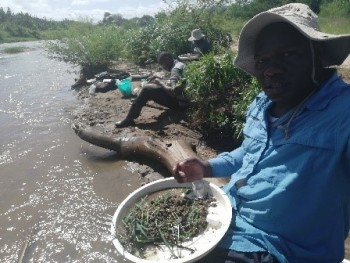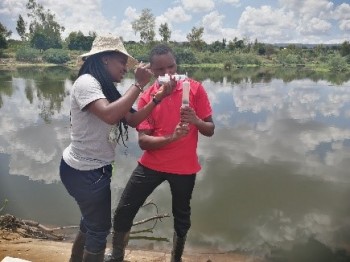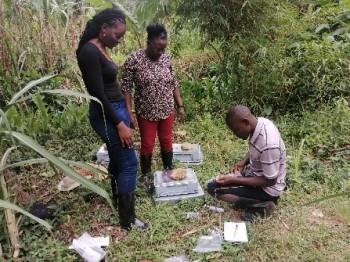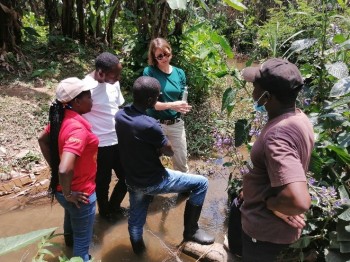Principal Investigator: Dr. Frank Masese
The GRESOL Project is multi-institutional and is funded under the RUFORUM consortium of African Universities from 2021 to 2023. This project is a partnership between UoE (Dr. Frank Masese, Prof. Gelas Simiyu and Dr. Ruth Njoroge) and the International Livestock Research Institute Nairobi (Dr. Polly Ericksen and Dr. Sonja Leitner), IHE-Delft Institute for Water Education (Dr. Gretchen Gettel and Prof. Anne van Dam). This project seeks to contribute much-needed data on GHG emissions from ruminant production in sub-Saharan Africa (SSA) by focusing on livestock watering points and aquatic ecosystems that are neglected in the literature. Livestock movement within agro-pastoral landscapes is related to spatial and temporal dynamics of soil carbon stocks and nutrients, which are precursors of GHG emissions from terrestrial and aquatic ecosystems. In aquatic ecosystems, livestock loading of organic matter (dung) and urine during watering enhances biogeochemical processes leading to increased GHG emissions. However, data are limited on GHG fluxes from livestock watering points in sub-Saharan Africa (SSA).
The project is transdisciplinary and brings together scientists and farmers (citizen science) to achieve the following objectives:
- Determine the effect of livestock production systems on water quality,
- Determine spatial and temporal dynamics of GHGs emissions and soil and sediment carbon stocks from livestock watering points, and
- Identify physical and chemical factors related to GHG emissions from LPS.
The project outputs envisaged include empowering communities on sustainable livestock production for improved water quality and reduced GHG emissions. The project is currently supporting four MSc students at the UoE.




